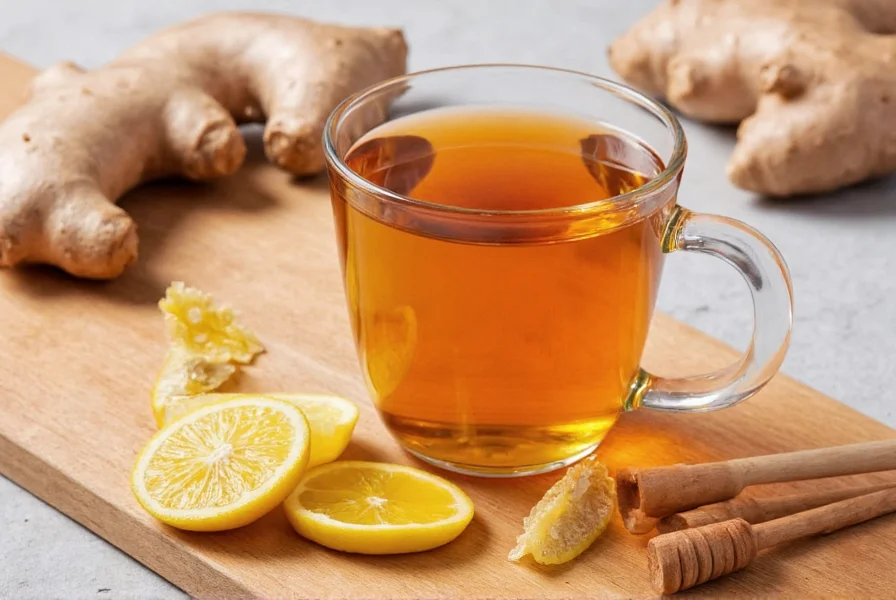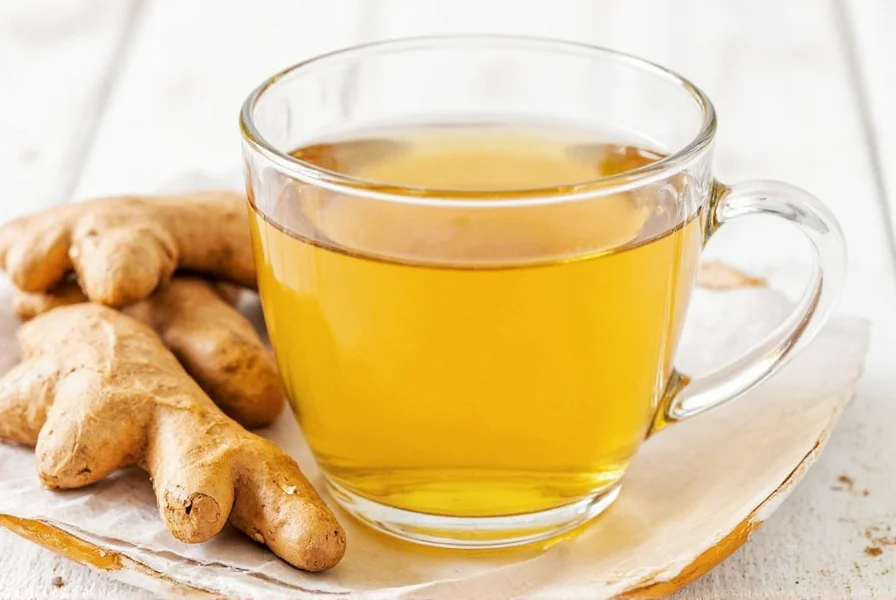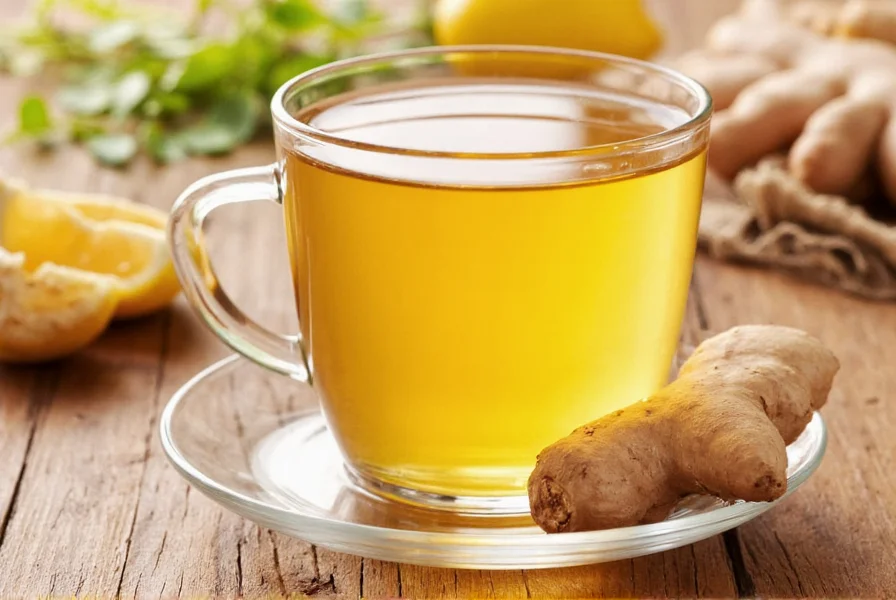For centuries, cultures worldwide have turned to this simple beverage as a go-to remedy during cold and flu season. The combination leverages the natural therapeutic properties of both ingredients in a synergistic way that modern science continues to validate. Unlike many folk remedies, ginger and honey tea has substantial research backing its efficacy for specific symptoms.
The Science Behind Ginger and Honey
Ginger root contains bioactive compounds like gingerols and shogaols that demonstrate significant anti-inflammatory and antioxidant effects. A 2013 review published in the International Journal of Preventive Medicine found ginger effective in reducing nausea and inflammation. For respiratory symptoms specifically, research in Complementary Therapies in Medicine showed ginger can help relax airway muscles.
Honey's medicinal properties are equally impressive. The World Health Organization recognizes honey as a potential demulcent for coughs. A comprehensive 2020 analysis in Cochrane Database of Systematic Reviews concluded that honey outperforms placebo for cough frequency and severity in children with upper respiratory infections. Its viscous texture coats irritated throat tissues while its natural hydrogen peroxide content provides mild antimicrobial action.
| Ingredient | Key Compounds | Primary Benefits | Research Support Level |
|---|---|---|---|
| Ginger | Gingerols, Shogaols | Anti-inflammatory, Nausea relief, Pain reduction | Strong clinical evidence |
| Honey | Hydrogen peroxide, Flavonoids | Cough suppression, Wound healing, Antimicrobial | Strong clinical evidence |
How to Make Ginger Honey Tea Properly
Creating an effective ginger honey tea requires attention to preparation details. Many people undermine the remedy's potential by using incorrect ratios or adding honey to excessively hot water, which destroys its beneficial enzymes.
For optimal results when making ginger honey tea for sore throat relief:
- Peel and thinly slice 1-2 inches of fresh ginger root
- Simmer in 8-12 ounces of water for 10-15 minutes (longer for stronger tea)
- Remove from heat and let cool for 3-5 minutes
- Add 1-2 teaspoons of raw, unprocessed honey
- Stir well and consume while warm (not scalding)

The ideal ginger to honey ratio for immune support is approximately 1 inch of ginger to 1 teaspoon of honey per 8 ounces of water. When preparing ginger honey tea for cough relief, slightly increasing the ginger concentration may provide additional respiratory benefits. Always add honey after removing the tea from heat, as temperatures above 140°F (60°C) degrade honey's beneficial compounds.
When This Remedy Works Best
Understanding when to use ginger honey tea versus seeking medical care is crucial. This remedy shows particular effectiveness for:
- Early-stage cold symptoms
- Mild sore throats
- Nighttime coughs (especially in children over age one)
- Morning nausea
- General immune system support during cold season
However, ginger honey tea should not replace professional medical treatment for:
- High fevers lasting more than 48 hours
- Difficulty breathing
- Severe dehydration
- Symptoms lasting more than 10 days
- Infants under 12 months (due to botulism risk from honey)
Safety Considerations and Limitations
While generally safe for most people, certain precautions apply when using ginger honey tea as home remedy. Individuals with gastroesophageal reflux disease (GERD) may find ginger exacerbates symptoms. Those with honey allergies should obviously avoid this preparation.
Diabetics should monitor honey intake carefully, as one teaspoon contains approximately 17 calories and 4.5 grams of sugar. People taking blood thinners should consult their physician before consuming therapeutic amounts of ginger, as it may interact with anticoagulant medications.
For children, the American Academy of Pediatrics recommends honey only for children over 12 months due to infant botulism risk. Ginger honey tea preparation for children should use reduced ginger concentration (½ inch per cup) and only ½ teaspoon of honey.

Maximizing Benefits Through Timing
When to drink ginger honey tea significantly impacts its effectiveness. For sore throat relief, consuming the tea every 2-3 hours during waking hours provides consistent symptom management. For cough suppression, having a cup 30 minutes before bedtime can reduce nighttime coughing episodes.
Those using ginger honey tea for immune support during cold season benefit from daily consumption rather than waiting for symptoms to appear. The optimal time for preventive use is mid-morning or mid-afternoon when natural immunity tends to dip.
Frequently Asked Questions
How much ginger should I use for ginger honey tea for sore throat?
For sore throat relief, use 1-2 inches of fresh ginger root per 8-12 ounces of water. Thinly slice or grate the ginger to maximize surface area, then simmer for 10-15 minutes. Longer simmering creates a stronger tea with more concentrated gingerols that help reduce throat inflammation.
Can I use ginger honey tea for children with colds?
Yes, but with important precautions. Ginger honey tea can be given to children over 12 months for cold symptoms. Use only ½ inch of ginger per cup and ½ teaspoon of honey. Never give honey to infants under 12 months due to botulism risk. For children under 6, consult a pediatrician before using as cough remedy.
Does ginger honey tea really work for coughs?
Scientific evidence supports ginger honey tea for cough relief. Multiple studies, including a 2020 Cochrane review, show honey effectively reduces cough frequency and severity in children and adults. Ginger adds anti-inflammatory benefits that may help soothe irritated airways. The combination works best for dry, irritating coughs rather than productive coughs where clearing mucus is beneficial.
When should I not use ginger honey tea as a remedy?
Avoid ginger honey tea if you have a high fever lasting more than 48 hours, difficulty breathing, severe dehydration, or symptoms persisting beyond 10 days. People with GERD may find ginger exacerbates symptoms. Those on blood thinners should consult a doctor first, as ginger may interact with anticoagulants. Always seek professional medical care for serious or worsening conditions.
What's the best way to store ginger for making tea?
Store fresh ginger root in the refrigerator for up to three weeks. For longer storage, peel and freeze ginger in an airtight container for up to six months. Frozen ginger can be grated directly into tea without thawing. Avoid storing ginger at room temperature as it quickly becomes moldy or shrivels.











 浙公网安备
33010002000092号
浙公网安备
33010002000092号 浙B2-20120091-4
浙B2-20120091-4